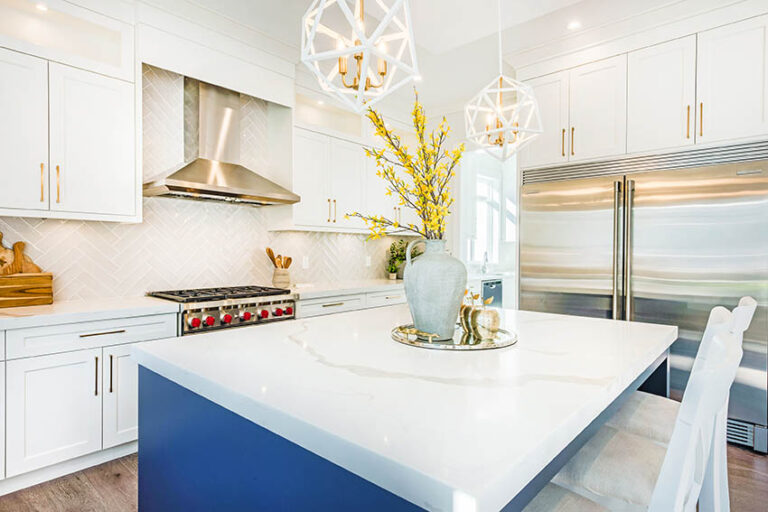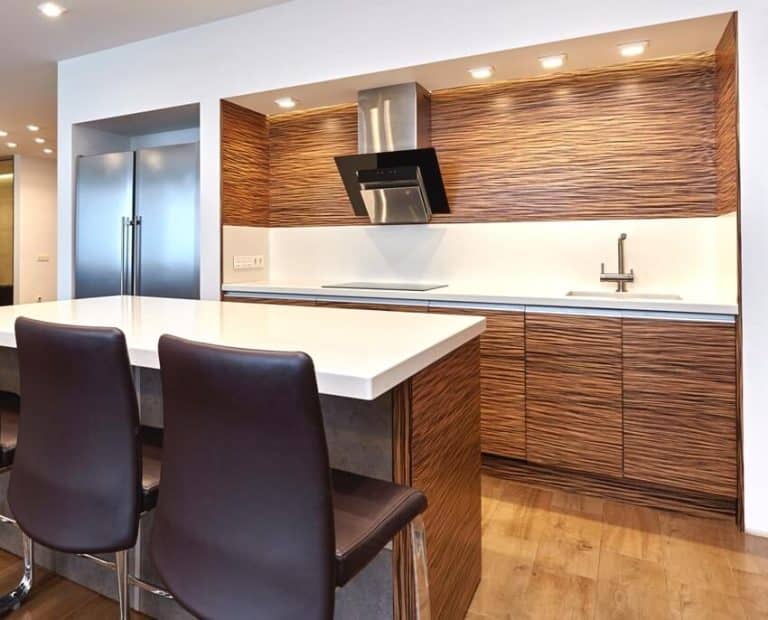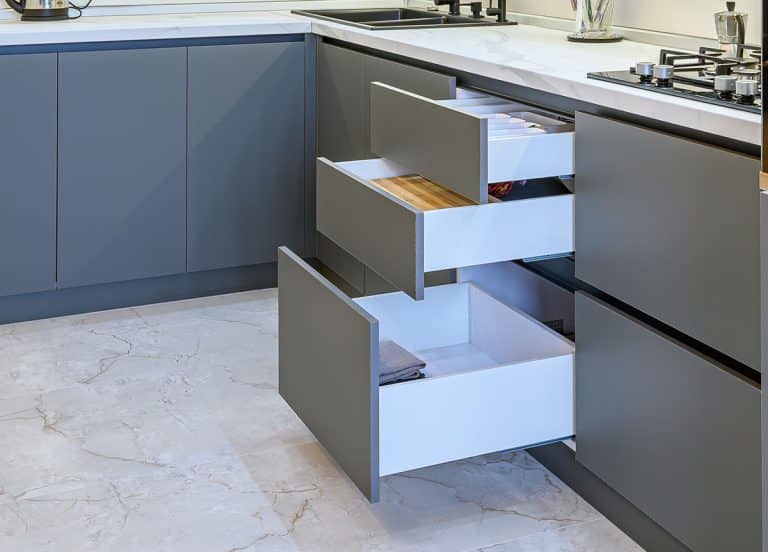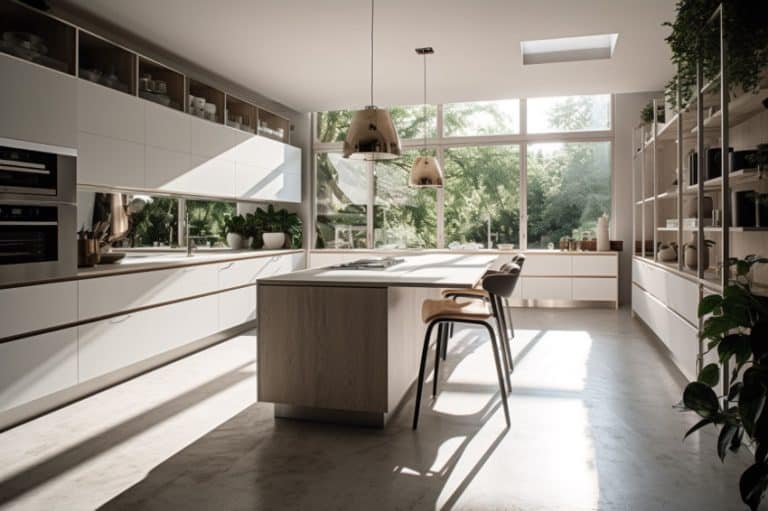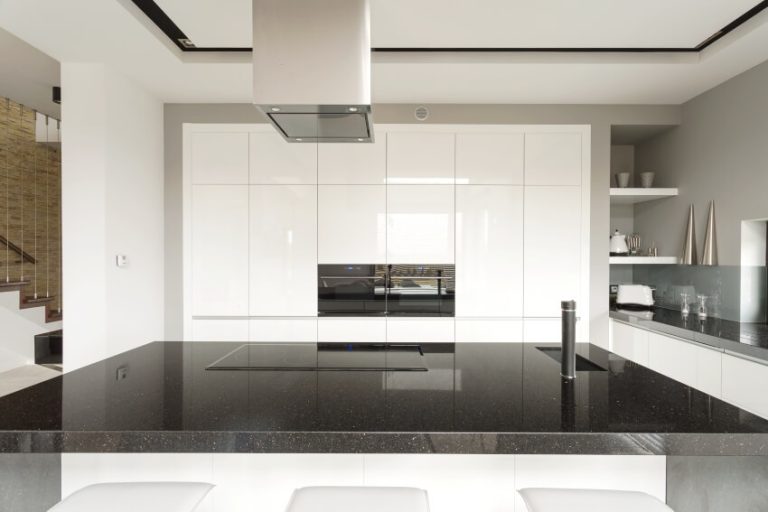Corian vs Granite Countertops (Design Guide)
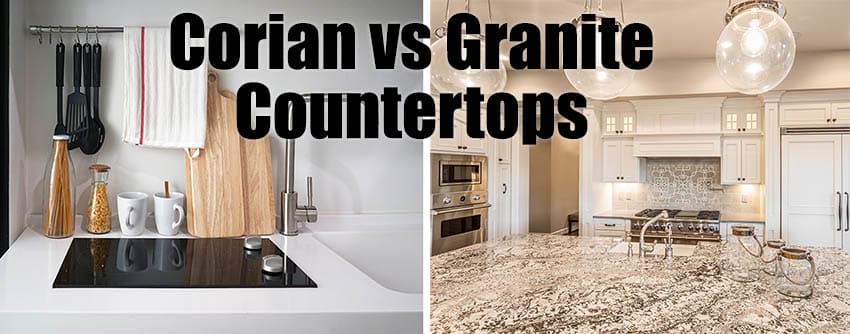
From being a simple kitchen workspace, the countertop has transformed into the jewel of the kitchen. This makes choosing the right material vital. In this article, we bring Corian and granite countertops into the spotlight for a side-by-side comparison.
Differences Between Corian and Granite Countertops
Granite is a natural hard stone with visible grains sourced from quarries. When polished and cut, its aesthetic appeal makes it an attractive material for a kitchen countertop.

Upload a photo and get instant before-and-after room designs.
No design experience needed — join 2.39 million+ happy users.
👉 Try the AI design tool now
Corian, on the other hand, is an artificial material called solid-surface. It’s the first of its kind, manufactured by American chemical company DuPont. Pigments, acrylic or polyester resins, minerals, and other fillers create Corian slabs.
There are many advantages to using Corian for your countertops. Corian slabs are molded, cut, and bonded seamlessly. Corian countertops are also easy to install, making them the best option for DIY projects. Finally, Corian comes in an almost limitless variety of designs.
Granite, in contrast, is heavier and more delicate for cutting due to its porous nature. It, therefore, requires more structural support when installing and professional handy work in general.
Design Options
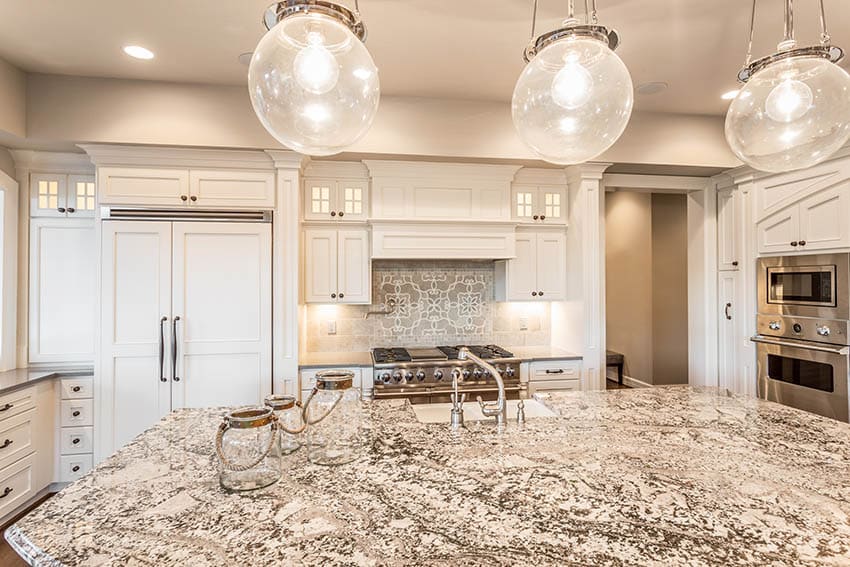
Granite and Corian offer a wide array of designs for your kitchen. While granite designs are more limited, they boast interesting patterns and natural color combinations that make for exotic countertops. Whether it’s burgundy and gold, green and black veins, or metallic blue and white, no two patterns are the same.
Among the classic favorites is granite in black or white. Black granite is elegant and timeless. This is usually the choice for kitchens dominated by white finishing. The striking contrast between black and white creates a clean-cut look.
Many homeowners also prefer white granite as it is easy to match with other colors. The light and gray veins on some white granites add a sophisticated look and resemble white marble. That said, white granites are low in abundance and are therefore more difficult to obtain and pricier. There are also no pure white granites in nature, although there are several off-white granites available in the market.
Granite typically gets a honed (matte) or polished (glossy) finish, although a new finish called leathered granite has been gaining popularity. Leathered granite is a newer and modern finish that’s neither too matte nor too glossy. It involves the process of running a diamond-tipped brush over the surface, creating interesting textures.
In comparison to granite, Corian provides you with the creative freedom to customize color and textures. Corian countertops can mimic natural materials like sandstone, marble, and granite designs, to name a few.
They are also available in wood textures. Corian’s NuWood line, for instance, showcases Beech and Mahogany wood designs. Metallic colors like silver, bronze, and copper are on the menu, too. Design-wise, Corian leans more to the modern side while granite gives off a more traditional yet classic look.
Durability
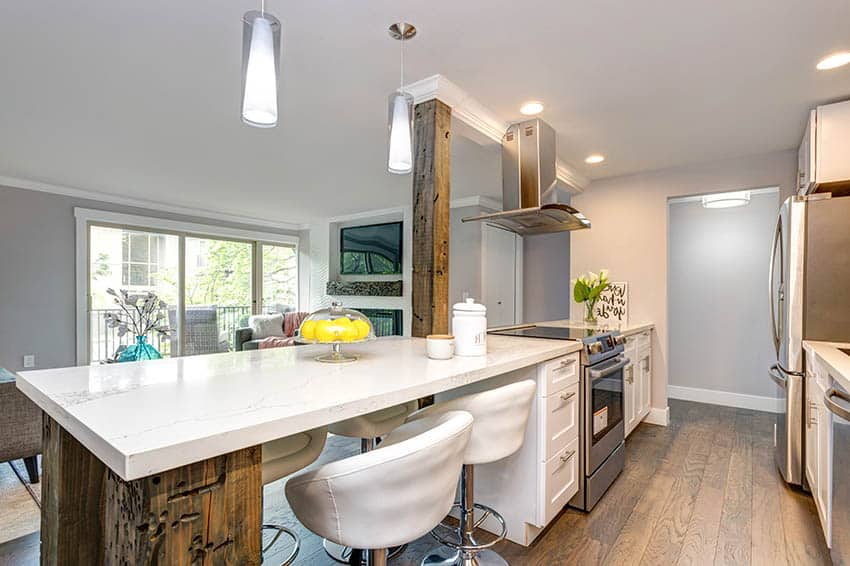
Durability is one of the strengths of granite. It is almost comparable to a diamond and can last up to 100 years. This makes granite one of the most reliable materials for heavily used surfaces like stairs, floors, and kitchen countertops. Do note that this does not make it 100 percent resistant to damage. Granite will break if struck with a hard and heavy object.
Corian is not as durable as granite, but this doesn’t mean it’s easily damaged either. Corian can survive the usual wear and tear in the kitchen. However, it can’t tolerate extreme heat, unlike granite. Take caution when putting down objects hotter than 250 degrees Fahrenheit as this may leave permanent damage on Corian surfaces.
Maintenance
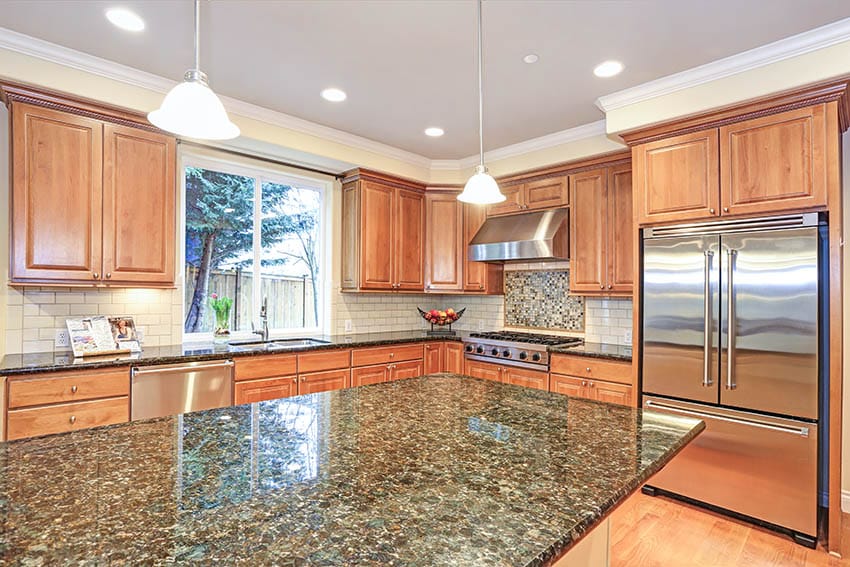
When it comes to stains, immediately wipe off spills on granite, especially the dark liquids. Corian, being nonporous, is more stain-resistant. It has a smooth and nonporous surface that is easy to maintain, although darker-colored Corian needs more regular cleaning. Soap and water can do the trick for removing stains. Avoid using strong cleaning chemicals as these may dull the surface.
Granite and Corian are not scratch-proof either. A knife aimed at the granite countertop, with enough force, will leave scratches. In the same scenario, the more fragile Corian may suffer more than scratches.
Concerning joints of slabs, Corian’s seamless bonding does not need regular gap fillings. Meanwhile, granite needs constant seaming for gaps and surface cracks to keep it in top shape and prevent bacterial growth. Granite’s regular maintenance can be laborious. But a less durable Corian is more prone to damage like extreme heat.
Cost
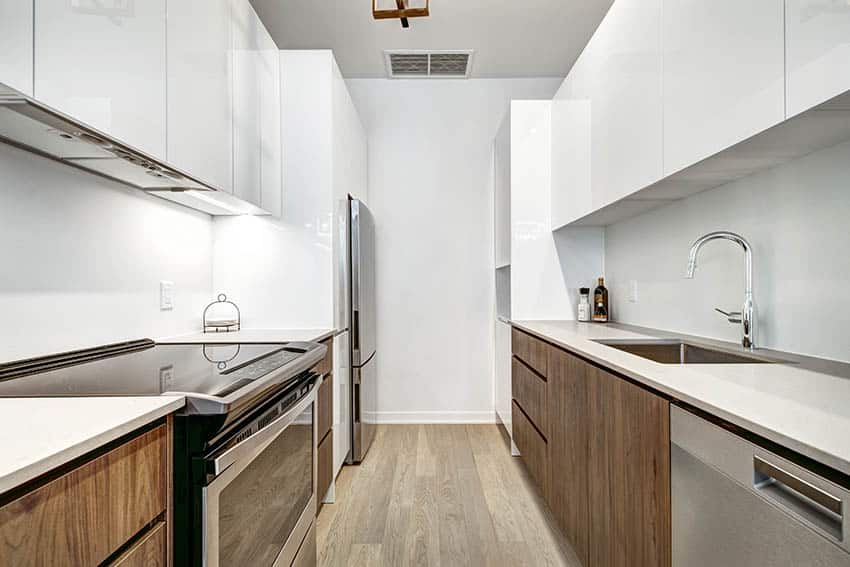
Granite and Corian are comparable in price. Granite can be cheaper or more expensive depending on the design, size, color, and grading you choose. Granite grading ranges from low-grade or commercial granite to high-end or exotic granite. Low-grade granite has soft minerals mixed in with the stone. Exotic granite is purer and comes with unique patterns and colors.
Granite starts at $40 to $100 per square foot. Expect your countertop price between $2,200 and $4,500. Corian doesn’t have grades, but pricing can be affected by thickness and availability in your location. In general, Corian’s prices fluctuate, starting from $45 to $65 per square foot. On average, a Corian countertop can cost $3,500.
Corian or Granite: Which Is Better?
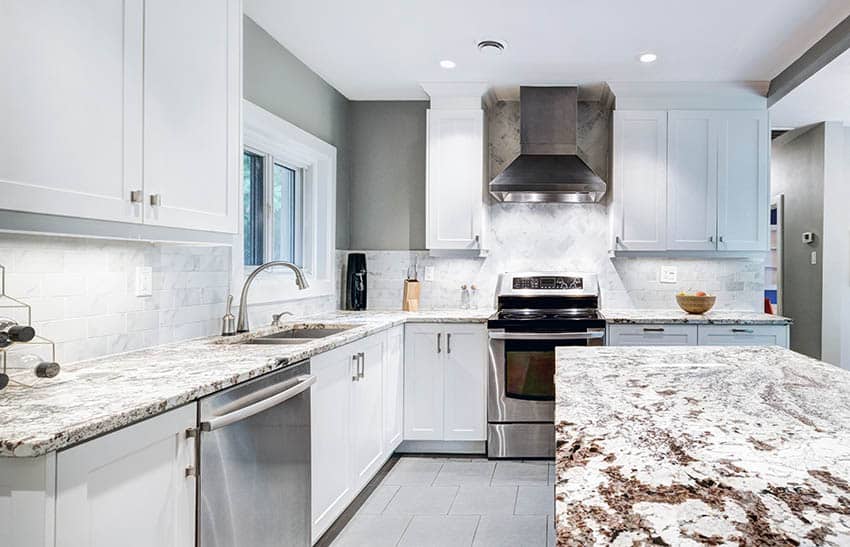
There’s no doubt that having a granite countertop in your kitchen will be the envy of others. Its natural beauty and durability make it a sought-after material among homeowners. But keep in mind that you’ll need to invest more in its maintenance. Its porosity requires regular sealing of cracks and gaps to avoid bacterial growth and further damage.
On the other hand, Corian is also a practical and more versatile option. It requires less maintenance compared to granite. Although not as durable as granite, Corian is strong enough to last your average day-to-day kitchen use. It also has tons of designs and is easier to utilize. If you are looking for a highly customizable material, then Corian is your best bet.
Whatever material you choose, a great kitchen countertop should suit your lifestyle, budget, and interior design. What’s your favorite when it comes to Corian vs granite countertops? Let us know below in the comments. For more like this visit our article about white kitchen cabinets with granite countertops.

